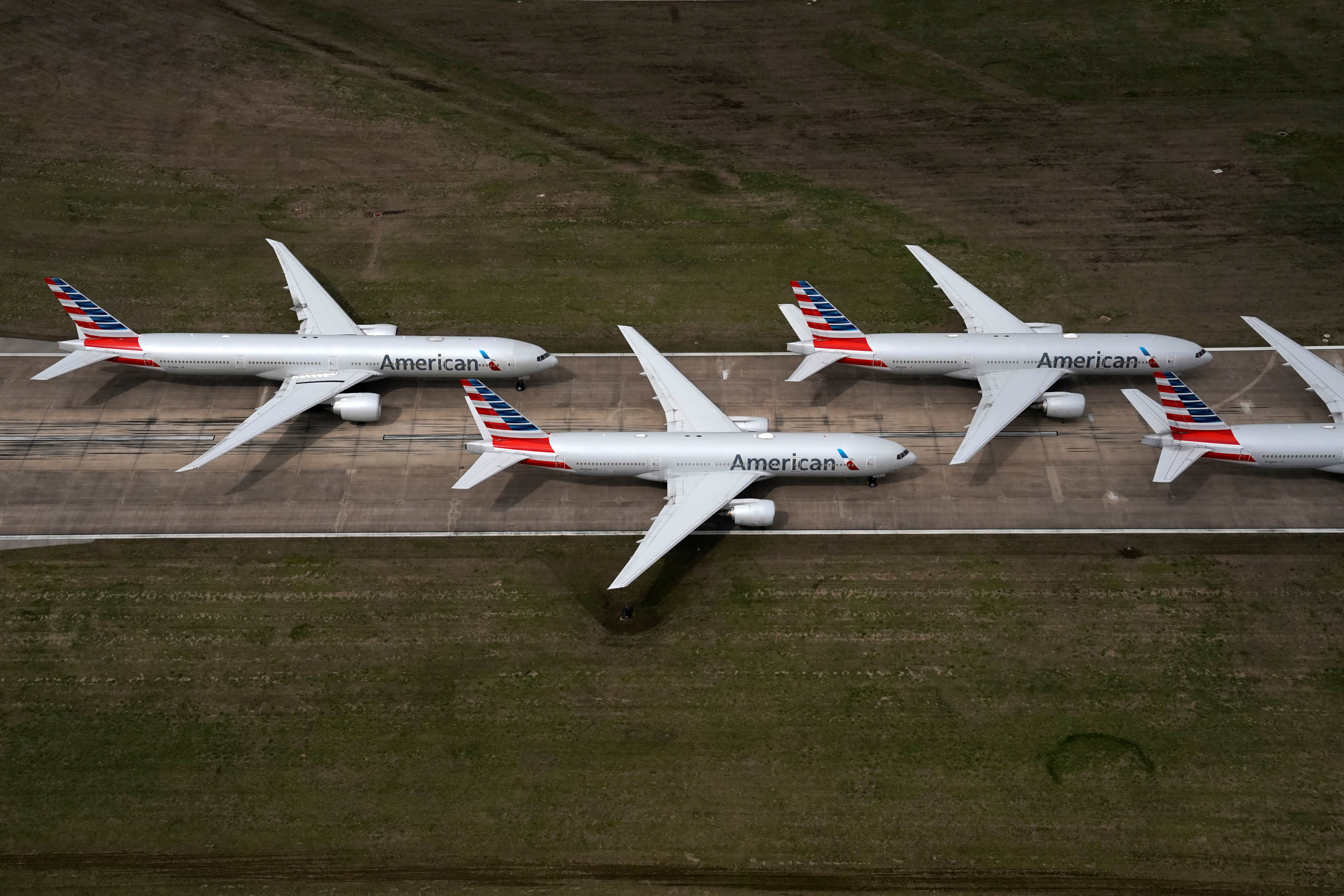American Airlines passenger planes crowd a runway where they are parked due to flight reductions to slow the spread of coronavirus disease (COVID-19), at Tulsa International Airport in Tulsa, Oklahoma, U.S. March 23, 2020.
Nick Oxford | REUTERS
U.S. airline executives face a test to see which sacrifices they are willing to make in exchange for federal aid that would allow them to continue paying their employees during the coronavirus pandemic.
Carriers have until 5 p.m. ET Friday to apply for $25 billion in grants in exchange for not furloughing workers or cutting their pay rates through Sept. 30, aid that airlines and labor unions lobbied for and Congress approved in a $2 trillion coronavirus relief package last week. The aid also allows for $29 billion in loans for passenger and cargo airlines.
Coronavirus has devastated air travel demand, prompting airlines to plead with their employees to take unpaid and partially paid leave as they scramble to cut costs. Even with the aid, top airline leaders warn of a prolonged slump in demand that has no end in sight.
Guidelines for the payroll aid issued earlier this week state that the Treasury Department is authorized to receive compensation in the form of warrants, options, preferred stock and other securities in exchange for the grants. Attaching warrants to the payroll grants was sharply criticized by some industry members and labor unions.
At least one U.S. airline was debating the size of an equity stake to offer in its application, or whether the carrier should offer one at all, according to a person familiar with the discussions. Another person familiar with the industry’s thinking said executives might be willing to allow the government to take small equity stakes such as around 2%, or cap the size of the stake.
While the loan application implies financial instruments in exchange for the funds will be required, the application for grants notes it “may” include such securities. One of the people familiar with the industry’s thinking said the softer language in applications for cash-grants leaves the door open to negotiation
Treasury Secretary Steven Mnuchin has said he wants taxpayers compensated for the investment, though he has not outlined those plans in great detail.
“I’ll be working very closely with the president to make sure we strike the right balance,” Mnuchin said in a press conference on Thursday. “Not a bailout: taxpayers get compensated.”
Airlines applying for grants will put forward an offer to the government on both amount and terms. Those offers differ across airlines, whose balance sheets and payroll costs vary.
Executives have said in public statements and to CNBC that getting the payroll grants are a priority.
“We still don’t know the severity of the situation. We don’t know how long it will last,” Southwest Airlines CEO Gary Kelly told employees in a video message on Thursday. “[The grants] helps us commit to job security for the next six months and as always, that is my No. 1 priority.”
But the approach of attaching warrants to the grants, not just the loans, was criticized by some industry members, labor unions and lawmakers.
The labor unions representing some 94,000 flight attendants, including those at American, United, Spirit and Southwest, meantime, have warned Mnuchin if the government exercises the full extent of its warrant on grants, which collectively could equal a 40% in the industry, it could cost them their jobs.
“This effectively renders the payroll grants a poison pill that will cost us our jobs and push us onto taxpayer-funded unemployment insurance — the opposite of what this bipartisan agreement intended,” the unions said.
The Regional Airline Association told Mnuchin and Transportation Secretary Elaine Chao on Monday that for smaller, regional airlines, any equity instrument could force worker furloughs.
“Since most regional airlines do not have the ability to take on debt, access capital markets, or issue warrants or equity, any condition to do so would render these carriers unable to obtain assistance and force these carriers to immediately furlough tens of thousands of aviation employees,” the industry group wrote.
